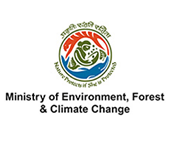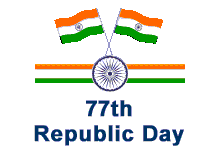
In view of the maturing of the Indira Gandhi National Forest Academy with five decades of accomplishments as the national staff college for the Indian Forest Service, it has been long-felt need that the Academy publishes its own journal. This is also cogent with the emergent expansion of the functions and mandate of the Academy. The fields of knowledge and skills in the training and academic pursuits of IGNFA have been growing and renewing in the realms of techno-scientific disciplines, areas of governance, management and administration together with social, political and economic dimensions of sustainable forestry, maintenance of ecological balance and protection of environment. The knowledge systems and academic engagements are now substantially interdisciplinary and trans disciplinary in nature. Therefore, IGNFA should be providing forum for dissemination and intellectual exchange of knowledge via a periodical journal for publication of articles by the members of forestry service cadres, other functionaries in government sector, and also by academicians and other interested stakeholders associated in the areas of forestry, wildlife and environment. The proposed journal of the Academy will also facilitate enriching the academic engagements of IGNFA.
As part of initiatives of the Academy to commemorate celebration of 75 years of India’s Independence, this journal will be one of the befitting initiatives under Azadi Ka Amrit Mahotsav (AKAM) amongst the special events and activities of celebrations in the year 2021-22.
The guidelines and modalities of the proposed journal will be as follows:
- The journal will be entitled ‘The IGNFA Journal’.
- The journal will be published in the name of IGNFA, Dehradun. The printing will be outsourced to
suitable agencies as per procedure. The works of proof reading, paper setting and cover design etc. will be
finalized by the Editor. In the matter of disputes if any, related to the content and publishing of the journal,
the
decision of the Chief Editor will be final.
The publications in The IGNFA Journal will include papers based on research work, consulting and professional experience, analytical reviews of literature on specific themes, research notes, short notes from professionals, academicians and scholars in on research work, consulting and professional experience, analytical reviews of literature on specific themes, research notes, short notes and book reviews from professionals, academicians and scholars in in the field of governance, administration, management and techno-scientific aspects in the forestry, wildlife, biodiversity and the related areas in environmental and ecological studies, together with issues and concerns of topical interest. - The Director IGNFA will be the Patron under whose guidance the journal will be brought out every six months with the issues to be released in January and July each year commencing with the launch of the first issue in July 2022.
- 4. a) The Editorial Board will consist of the following:
Chief Editor Additional Director, IGNFA Editor Professor (Academics) / Professor (IST) - nominated by Director, IGNFA 2 Associate Editors Additional Professor / Associate Professor - nominated by Director, IGNFA b) Editorial Advisory Board & Reviewers Panel
Experts To be nominated by Patron for a period of two years Reviewers Panel To be proposed by the Editorial Board from amongst the experts for approval by the Patron - Secretarial support for the journal will be provided by the Research Cell of the Academy by engaging staff on contract basis as per requirement of publication related works.
- Efforts will be made to get suitable accreditations for the journal.
- Besides standard circulation among different offices, organizations and institutions free of cost, the Journal will also be available on-line on the Academy’s website during the first year of publication, and the issue of making it a priced publication will be taken in due course.
- Disclaimer: The author(s) of each article appearing in IGNFA Journal is/are solely responsible for the content thereof; neither the Publisher nor the journal editors or anyone else involved in creating, producing or distribution assumes any liability or responsibility for the accuracy, completeness, or usefulness of any information provided in the Journal (s), nor shall they be liable for any direct, indirect, incidental, special, consequential or punitive damages arising out of the use of the journal content.
- Notes for Contributors —
a) Manuscript submission :
Copies of the paper, notes, or book reviews to be considered for publication must be sent to the Editor, IGNFA Journal, as a Word file attachment via e-mail (editor [dot] journal [at] ignfa [dot] gov [dot] in). Additionally, a hard copy in 1.5 spacing—on one side of the paper, with sufficient margins on both sides—can also be sent. It is a condition for publication that the material sent is original work, which has neither been previously published nor been submitted for publication elsewhere. It is in the author’s interest to submit a clearly written and carefully proofread manuscript.
Manuscripts of papers should reach the Editor three months prior to the date of release of a particular issue. The papers received for publication will be sent to referees for their comments before a final decision is taken on their inclusion. The authors of papers that are published will receive 10 reprints free of cost. The manuscript should comply with IGNFA editorial and publishing policies – details will be made available online, in website shortly.
b) Blind review:
The IGNFA Journal will follow a policy of blind peer review. To facilitate this review, a separate title page should include the title of the paper, names(s) of the author(s) and corresponding author and relevant biographical information. The second page should carry the title of the paper and a 100 to 200-word, single paragraph abstract of the paper. Manuscripts should ideally not exceed 25 double-spaced typed pages with word count not exceeding 4000.
c) Research results:
Those papers that report the results of empirical research are expected to provide reliability estimates for all measures or give a thorough justification for their absence. When statistically significant relationships are reported, an estimate on the variance accounted for must be provided. When non-significant statistical tests are reported, an estimate of the power of the test must be given. Avoid graphs and analyses of variance summary tables but include tables of means and standard deviations and/or correlation wherever needed. The tables should be numbered.
d) Format and style: The contribution should be submitted in the following format:
- Title: This should be in block capitals, brief and specific conveying the main subject of the contents of the paper. The title should be followed with the name of author/authors (in block capitals) along with their affiliation and complete address. Senior/corresponding author should also give his/her email Id if available.
- Name of author/authors along with their affiliation/address,
- Abstract: Abstract should summarize the content of the paper. It should be accurate, expressive, intelligible and brief (not exceeding 200 words). Do not write references nor display equations in the abstract.
- Key words: Three to five keywords which are prominently used in the paper and have relevance to the contents should be given following the "Abstract"
- One liner: One liner should be catchy highlighting the main outcome of the study in brief, just in one line (not exceeding 35-40 words).
- Introduction: It should introduce the topic with a background knowledge/studies related to the topic, justifying the selection of the study and also elaborate in short, the objectives of the study.
- Material and Methods
- Results and Discussion,
- Conclusion
- References: References should be given at the end of the article on separate sheet of paper. Reference to a citation in the text should be made by means of the author's name followed by the year of publication in parenthesis. The references, in the list should be arranged alphabetically in chronological order.
- Declaration: The author must write a Declaration as below in the end of the article:
"I declare that the manuscript has not been published in any journal/book or proceedings or in any other publication or offered for publication elsewhere in substantially the same or abbreviated form, either in print or electronically.”
Papers should be no more than 4,500 words including references and endnotes. Quotations of 45 words or more should be separated from the text and indented with one space with a line space above and below. An alphabetical reference list of all books, articles, essays and theses referred to in the text should be provided. Contributors must provide their affiliation, complete postal and e-mail addresses and telephone numbers along with their papers. Authors should disclose any potential conflict of interest regarding the manuscript. Authors should avoid plagiarism and copyright-related offenses. Material taken directly from a copyrighted source should be clearly identified, and the copyright holder’s written permission to reproduce it must be submitted in a separate file. It is very important to note that obtaining permission to reproduce copyrighted material is the author’s responsibility, as is payment of any fees the copyright holder may request.
e) Books for review:
One copy of each book should be sent for review to the Editor. The publication takes no responsibility for returning books not found suitable for review. One copy of the journal will be sent separately to the reviewer and the publisher if the book review is published.
Page Last Updated: 16-02-2026 12:13 PM







































